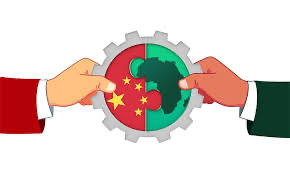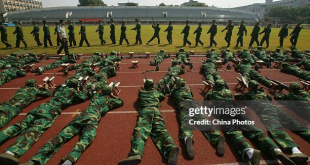By Staff Writer

The African Renaissance is a term that signifies the revival of Africa’s cultural, economic, and political power in the global arena. It represents a movement to overcome the historical challenges of colonialism, poverty, and underdevelopment that have long hindered the continent’s growth. In this renaissance, the role of international partnerships is indispensable, and China has emerged as one of the most significant players in shaping the future of Africa.
For much of the 20th century, African nations were subjected to colonial rule, which resulted in political and economic structures that primarily benefited the colonial powers. After independence, many African countries struggled with political instability, corrupt governance, and poverty. However, in the 21st century, Africa has witnessed substantial economic growth, driven by a combination of rich natural resources, young populations, and emerging markets. This period of growth has laid the foundation for the African Renaissance, where there is a renewed focus on development, self-reliance, and cultural revival.
In recent decades, China has taken a proactive role in Africa’s development. The relationship between China and Africa is not new, but it has deepened significantly over the past two decades. China has become Africa’s largest trading partner, surpassing traditional Western powers in both trade and investment. The nature of this relationship is multidimensional, encompassing trade, infrastructure development, investment, and cultural exchange.
Chinese investments in infrastructure have been transformative for many African nations. China has been instrumental in building roads, bridges, railways, and ports, facilitating economic integration across the continent. One of the most notable examples of this investment is the construction of the Standard Gauge Railway in Kenya, a project that is expected to boost trade and regional connectivity. These infrastructural developments are not only enhancing Africa’s global competitiveness but also reducing the logistical challenges that have long hindered trade within the continent itself.
The Belt and Road Initiative (BRI), launched by China in 2013, has further solidified China’s relationship with Africa. The BRI is an ambitious global development strategy that focuses on building infrastructure and fostering trade routes between Asia, Europe, and Africa. Through the BRI, China is offering significant loans and investments in African nations to build critical infrastructure that supports economic growth. The BRI’s emphasis on connectivity aligns closely with the goals of the African Union’s Agenda 2063, which aims to integrate Africa through economic cooperation, infrastructure development, and intra-continental trade.
China’s economic diplomacy is a cornerstone of its relationship with Africa. Unlike traditional Western approaches, which have often been tied to conditionalities or political reforms, China’s strategy has been based on pragmatism and mutual benefit. This approach has garnered significant goodwill across the continent, as African nations appreciate the flexibility and the non-interference in their domestic policies.
In addition to economic and political cooperation, China has also worked to strengthen its cultural ties with Africa. Through educational exchanges, scholarships, and the establishment of Confucius Institutes, China has deepened its cultural diplomacy on the continent. These initiatives have helped promote understanding of Chinese culture and language while fostering collaboration in various sectors, such as education, technology, and tourism.
Furthermore, China’s commitment to African development is demonstrated by its active involvement in international forums such as the Forum on China-Africa Cooperation (FOCAC). FOCAC serves as a platform for dialogue and cooperation, bringing together African leaders and Chinese policymakers to discuss shared priorities and strategies.
The African Renaissance is a long-term vision that requires sustained effort, innovation, and collaboration across various sectors. China’s role in this journey is undeniable, as its investments, trade, and cultural diplomacy continue to shape the future of Africa. However, for this relationship to remain beneficial, it is essential that African nations maintain agency in shaping their own development paths. As Africa continues to rise on the global stage, its relationship with China can play a pivotal role in realizing the dreams of a prosperous, self-reliant, and unified continent.
China’s support and partnership with Africa are crucial to the African Renaissance. As both regions continue to collaborate and forge a future based on mutual respect and shared aspirations, the partnership between China and Africa holds the promise of a more prosperous and interconnected world.
 Africa -China Review Africa -China Cooperation and Transformation
Africa -China Review Africa -China Cooperation and Transformation
